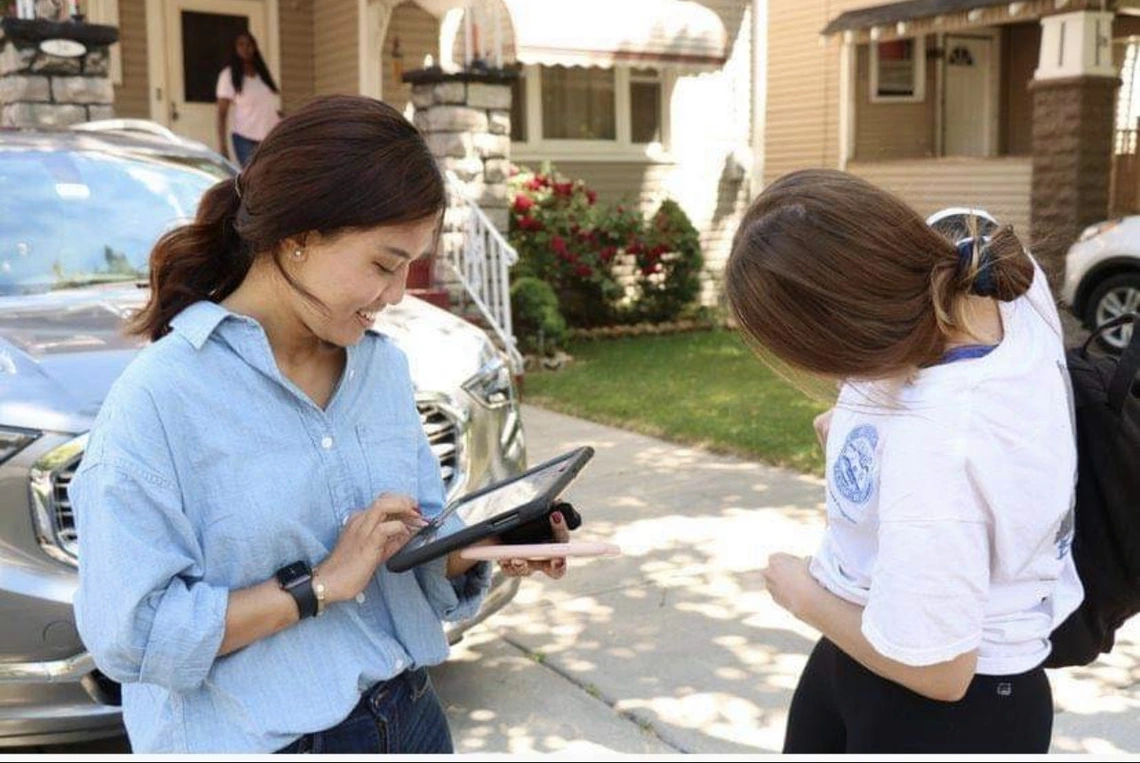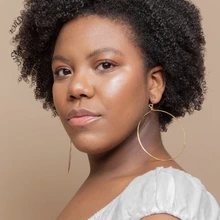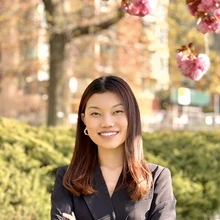Human Rights Practice students reflect on their experiences with AmeriCorps

In the photo, Human Rights Practice student Pemba Sherpa was engaged in the Mayor's Clean Sweep Program in Buffalo, New York. Every week, AmeriCorps volunteers had the opportunity to go out and conduct door-to-door outreach, deliver resources, and collect data. In the photo, Pemba is inputting data based on the resident's responses to questions regarding their quality of life in the neighborhood.
We are proud that several of the students in the University of Arizona's fully-online Human Rights Practice Program have served in AmeriCorps. As the federal agency for national service and volunteerism, AmeriCorps provides opportunities for Americans of all backgrounds to serve their country, address the nation’s most pressing challenges, and improve lives and communities.
In this article, some of these AmeriCorps participants share some perspectives and insights about the connections between AmeriCorps service and the field of Human Rights Practice. The participants below are current Human Rights Practice graduate students N’Dea Walker, Noor Rana, and Pemba Sherpa.
On our website, you can learn more about the University of Arizona’s Human Rights Practice MA and Certificate as well as our specialized Graduate Certificates on Gender-Based Violence; Human Rights and Documentary Media; and Human Rights and Technology.
How do you see AmeriCorps service relating to the field of Human Rights Practice?

Human Rights Practice graduate student Noor Rana
Noor Rana: AmeriCorp's service relates directly to Human Rights Practice as it allows its members to work directly with at-risk communities in several different ways. Members get to communicate, engage, and interact with at-risk communities firsthand, which allows them to build healthy communication skills. Members also get to understand organizations and their mission, learning and understanding more about the organization's structure, why that structure exists, and how that structure is implemented. This allows analyzing and understanding the blind spots and strengths of organizations critically, which enables critical thinking. In addition, members get a sense of human rights violations and social justice inequalities on a national level. This provides an awareness of how to tackle human rights violations locally. This is an important lesson because all change needs to be incremental, consistent, and sustainable to become a healthy norm. We can't solve all global human rights violations in a day, but we can start locally by working with organizations like AmeriCorps. We contribute to making the world a better place by our participation.
N’Dea Walker: AmeriCorps offers a Civic Leadership Training course that teaches us how to apply our knowledge to a non-profit and how to expand in our communities. The work being done and the training both relate to Human Rights Practice by having direct experience with non-governmental organizations, being able to participate in the field, and advocate and support the people who live in my city through volunteering for clean ups. The AmeriCorps service connected me directly to an organization that promotes environmental health and cleanliness for the betterment of our neighborhoods. I get to work face-to-face with locals and use my Human Rights Practice education to apply ethics, knowledge, and progress within AmeriCorps.
Pemba Sherpa: AmeriCorps allows you to work on programs in various areas of health, environment, education, housing, and other ways to uplift communities. AmeriCorps is a service to the community and so is human rights. As human rights practitioners, we work to protect and defend the rights of individuals, along with identifying innovative ways to respond to issues of today and tomorrow. The skills that you obtain through the year of service will prepare Human Rights Practice graduates or students to tackle many of the pressing issues starting in their own communities or communities near home. After an AmeriCorps service year, you have a better understanding of the effects of poverty on communities and families living in those communities. Additionally, you walk away with transferrable skills and hands-on experiences that will shape you and your future career.
How can AmeriCorps participants and alums benefit from the Human Rights Practice program at UA?

Human Rights Practice graduate student N'Dea Walker
Pemba Sherpa: Through the Human Rights Practice Program, you have the opportunity to collaborate and learn from Human Rights activists from all over the globe. As an AmeriCorps alum, you have the opportunity to work with community leaders, activists, and change-makers in your own community. The Human Rights Practice Program allows you to take that one step further and engage in issues that not only impact your own communities but globally as well.
Noor Rana: AmeriCorps participants and alumni can benefit from the Human Rights Practice program at UA as they make further sense of their service experience. For instance, as I served, I gathered my observations about systemic abuse, trauma, and structural violence but didn't truly understand why and how they came to be. Through my human rights studies, I have learned about systemic and political abuses to understand human behavior. I know more about the root causes of social justice inequalities. Thus, my service experience and education together build the foundation for my human rights career.
N’Dea Walker: AmeriCorps alumni can benefit from the Human Rights Practice program by being more involved in the community and being able to connect with departments, organizations, and agencies within the field. They can also benefit from the learning and experience of partnering with NGOs and using Human Rights Practice to bridge a communication and expertise gap. AmeriCorps is a great organization that has helped me learn how to be a civic leader, how to operate in a NGO, and be able to make connections within the field I am studying. I am confident that once I graduate from the Human Rights Practice program, my AmeriCorps experience will also contribute to possible job opportunities within my interests.
Could you tell us a bit about your AmeriCorps experience and what you gained from it?

Human Rights Practice graduate student Pemba Sherpa
Noor Rana: I served three AmeriCorps terms at two difference locations between 2016 and 2021. I worked as an adult GED teacher and youth education specialist, gaining the opportunity to engage with at-risk communities. This experience was important for me as I intend to pursue a career in human rights. Thus, I got the opportunity to build communication skills, meet people where they are, understand that "saving someone" is not how to approach at-risk communities, and more. My personal growth as a human being is also attributable to my work with AmeriCorps. I am more sensitive and mindful when learning about human rights. I also challenge myself to think critically and to analyze what I am learning in my classes. My service at AmeriCorps has benefitted me academically, professionally, and personally.
N’Dea Walker: I volunteer with Tucson Clean and Beautiful through AmeriCorps, which has been an amazing experience. AmeriCorps offers training, community volunteer opportunities, and great partnerships that help my community grow. I have learned a lot about working directly with non-profit organizations, including the dynamic of grant writing and finding proper donors, how to lead a team, and how to improve the non-profit that I volunteer with.
Pemba Sherpa: I joined AmeriCorps right after I graduated from college in 2020. I was an AmeriCorps volunteer with Buffalo City Hall Law Department and Department of Community Service. I worked on a lot of housing-related projects along with community outreach programs and grants with the city at the peak of COVID. I also had the opportunity to collaborate with other AmeriCorps volunteers working in different city hall departments to conduct door-to-door outreach, deliver resources, and educate community members on different city programs and resources available. My AmeriCorps experience allowed me to see the intersectionality between local government and communities. It also gave me the opportunity to join forces with organizations rooted in the communities to address pressing problems.

